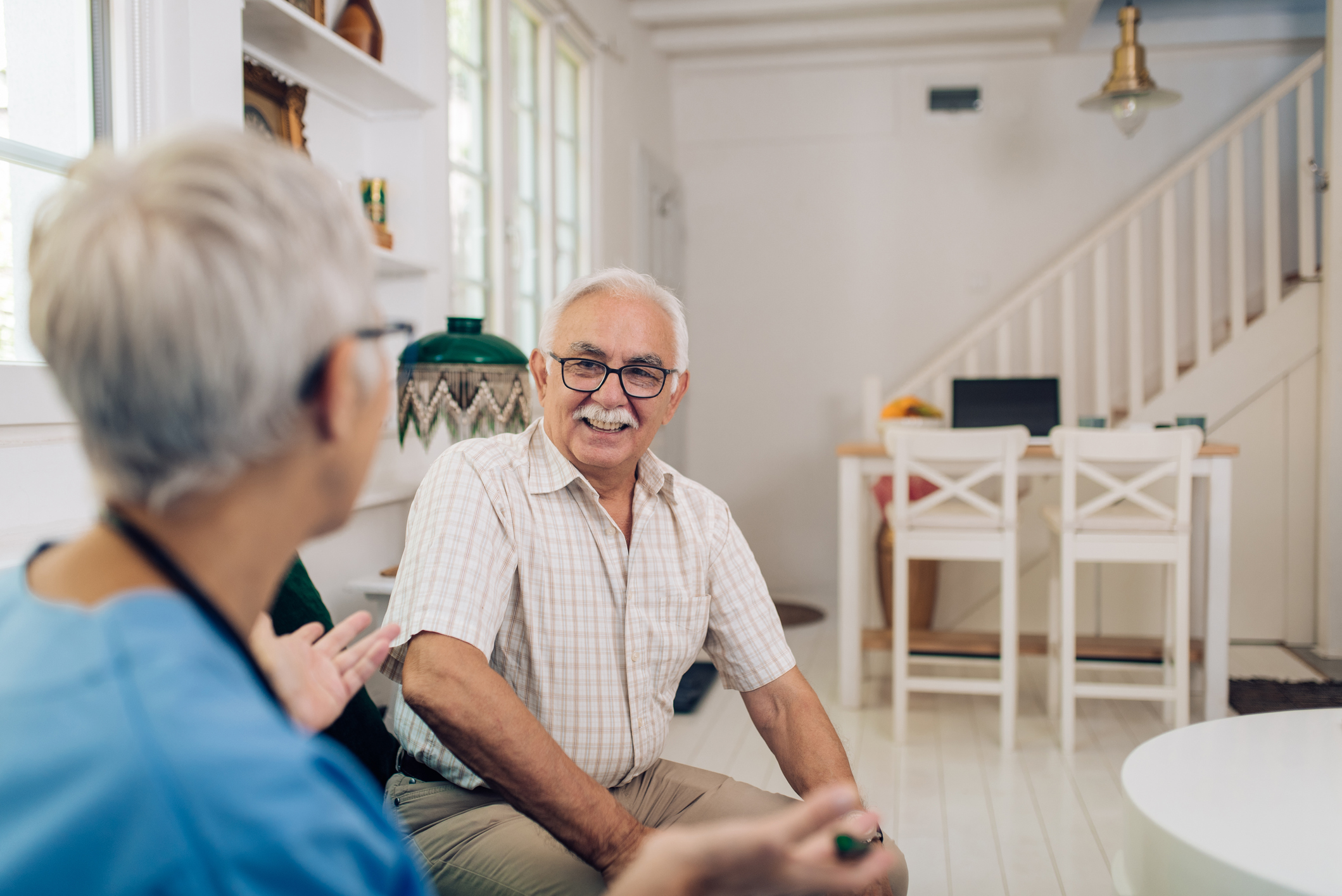
Elderly care solutions can begin with an in-home care consultation.
You’ve just concluded speaking with Dad on the telephone, and now have a sense that something isn’t quite right. While it was a nice conversation, his memory lapses were troubling. He assured you that he is absolutely fine – that he is eating very well (even though he couldn’t remember what he had for lunch), taking his medications, and having no issue keeping up with the household chores. In the event that you aren’t entirely convinced that a loved one is completely self-sustaining and safe, an excellent first step would be to arrange for a consultation with an award-winning, licensed home care provider, like Abby Senior Care. This enables a knowledgeable, objective third party professional to speak to the individual in the comfort and familiarity of home, while assessing various critical areas and designing a plan for customized elderly care solutions.
The Older Adult’s General Wellbeing
Throughout the consultation, the home care expert will find out how the senior is feeling, both physically and emotionally.
- Is she or he bored or lonely?
- Physically active?
- Steady and balanced, or susceptible for a fall?
Additionally, cognitive health can be evaluated.
- Is the senior forgetful?
- Are there concerns with wandering, agitation, aggression, confusion?
- Does she or he seem capable of successfully managing the household?
Activities of Daily Living (ADLs) and Instrumental Activities of Daily Living (IADLs)
It is important for a loved one living independently to be able to attend to everyday tasks that fall under two categories: ADLs and IADLs.
ADLs include activities such as:
- Self-feeding
- Showering/bathing and other personal hygiene needs
- Getting dressed
- Using the toilet
- Moving from bed to chair and throughout the house independently
IADLs are less fundamental, yet still important for independent living, and include:
- Housekeeping
- Planning and preparing meals
- Running errands and shopping
- Taking medications as prescribed
- Making and receiving phone calls
- Bill paying/money management
The Home Environment
The in-home consultant can also assess the older adult’s living space for any potential risks and hazards, such as:
- Issues that could contribute to a fall: clutter, low-lying furniture, or cords in the senior’s walking paths, stairways without proper handrails, no grab bars in the bathroom, loose throw rugs, and more
- If there are fresh foods readily available that are not beyond the expiration date, moldy, etc.
- Whether there are any signs of accidents, such as burn marks on the counters or scorched pots/pans
- Unopened mail piled up
- Dirty dishes stacked on the counters, or other indicators of trouble with maintaining the house to healthy standards
Based on the outcome of the consultation, the home care professional can prepare a plan outlining customized elderly care solutions which will identify the ways an in-home caregiver can help overcome any challenges being encountered. Often with just a little support, seniors can continue to live and thrive at home where it is most comfortable, with enhanced safety to bring families peace of mind, while never sacrificing the older adult’s freedom and independence.
Get in touch with Abby Senior Care, the experts in home and Alzheimer’s care in Denver and nearby areas, to schedule a complimentary in-home consultation for an older adult you love today! Email or call us any time at 303-699-8840.
